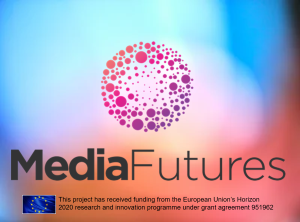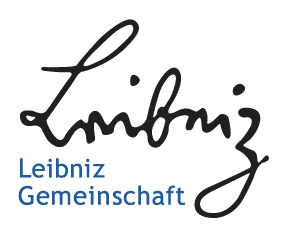Lessons Learned during MediaFutures
In this blog post, we share certain Lessons Learned during the MediaFutures project. More specifically, we collected insights on the multiple elements of the MediaFutures support programme. There are four major topics which have been conducted in the form of written interviews with specific MediaFutures partners: “Open Calls Selection Process, Diversity & Inclusion”, “The MediaFutures Support Programme”, “Collaboration between Startups and Artists”, and “Collaborations between Startups and Artists”.
Open Calls Selection Process, Diversity & Inclusion
The Open Calls Selection Process, Diversity & Inclusion involved the selection of qualified startups and artists for the support programme. In order to establish the Engagement of Community, one of the most important priorities at the beginning of the programme was to map and reach out to relevant stakeholders in the data science, media entrepreneurship, art and journalist domains.
Unique H2020 project
MediaFutures distinguishes itself from other H2020 projects thanks to its Programme Uniqueness: the artistic side of the project incorporated active citizen engagement while the business and technological side enabled startup-artist collaborations, leading to synergies that, without the programme, would have likely not been explored. In order to shape the support programme application process for startups & artists, the Programme Iteration involved measurements such as reducing a number of challenges into only one, namely mis-/ disinformation.
Diversity & Inclusion
Last but not least, Diversity & Inclusion could be ensured since we have developed diversity criteria into the application process and funding external evaluators with different backgrounds. This proved to be a success factor since we increased chances for women and non-binary persons, people of colour, and people from lower socio-economic countries to be selected as candidates for our support programme.
Bespoke MediaFutures Support Programme
 One of the major roles MediaFutures takes on is the role of an educator which included a bespoke MediaFutures Support Programme, tailored to the needs of startups, artists and collaborative teams of startups and artists. Thus, in regards to Important Training Subjects, the training sessions at the start of the programme focused more on core subjects such as data ethics, pitching skills, regulatory issues, and GDPR.
One of the major roles MediaFutures takes on is the role of an educator which included a bespoke MediaFutures Support Programme, tailored to the needs of startups, artists and collaborative teams of startups and artists. Thus, in regards to Important Training Subjects, the training sessions at the start of the programme focused more on core subjects such as data ethics, pitching skills, regulatory issues, and GDPR.
At a later stage of the programme, the training sessions focussed more on business-oriented subjects as well as subjects that required a certain degree of creativity and innovation. Thanks to a thorough and good initial scoping of training needs, most core sessions remained the same. However based on feedback of the participant trainers, certain Changes in Training Offerings were made, based on the needs and preferences of the participants. Looking back on the outcomes of the support programme, the MediaFutures can share the Practical Advice that it is important to align well with both the trainers and participants at all times when organising a variety of training sessions.
Collaborations between Startups and Artists
Yet another key role of the MediaFutures project as organiser of the support programme was that of a facilitator for Collaborations between Startups and Artists. In that respect, we were able to collect a number of Insights from Artist-Startup-collaborations. Although in some cases, certain startups and artists had already formed a team for a joint application, it was often required from the project organiser to implement matchmaking in order to connect SMEs and startups with artists and creatives for joint art-tech projects. Hence, both parties could benefit from each other’s expertise and unique areas of specialisation.
In particular, SMEs and startups particularly interested in the user involvement and engagement could benefit from artistic insights and approaches improving gamification, user interface and engagement, whilst artists also benefited from access to novel AI technologies and new funding opportunities. The Innovation at the Intersection between Art and Technology opened up new formats of mediation that raised awareness on the subject of misinformation and disinformation.
MediaFutures support programme
Regarding the approach of the MediaFutures support programme, experiences were made deploying design experiments with several projects in order to perform research on the fields of computational social science, human-computer interaction or artificial intelligence. In the scope of the Approach of the support programme to tackle misinformation & disinformation, structures that enabled customised mentorship in certain areas were established so that the programme participants could gather additional expertise. After reviewing all projects, key areas of potential improvement were identified and individual sessions were organised to understand the needs of the teams in terms of data technologies, legal and ethical aspects of data, social impact, and other topics of interest.
Data sets and tools
In addition, a catalogue of data sets and tools facilitated teams to get access to data and drive forward their data-driven projects. Among the Needs of Startups and Artists were the access to quality data which could be used in a sound and ethical manner as well as datasets about specific topics, participatory methods for generating labelled data or techniques for collecting data from digital platforms. Oftentimes, the teams were looking for specific datasets matching their needs in order to provide insights for their artwork, installation or business.
Contributions of MediaFutures participants to the Media Value Chain
Contributions of MediaFutures participants to the Media Value Chain were made through new, playful, narrative, gamified and artistic approaches. Beyond the key strategies which merely focused on debunking, the MediaFutures implemented strategies of data and media literacy. This way, we reinforced social links, by promoting discussion between different perspectives and beliefs, and drew attention to hidden behaviours and data, or helped users and citizens to develop critical thinking about algorithms.
Last but not least, individual partners from the MediaFutures Consortium were asked to share short videos on their own lessons learned which are available on the MediaFutures website.
About the MediaFutures project
The MediaFutures project was carried out by a consortium consisting of ten organisations from six European countries: Leibniz Universität Hannover (coordinator), King’s College London, Institute for Research and Coordination in Acoustics/Music (IRCAM), Centre Pompidou, University of LUISS, Zabala Innovation Consulting, Next Media Accelerator, Eurecat Technology Center of Catalonia, Open Data Institute, DEN Institute and KU Leuven.
The project was funded by the European Commission under the Horizon 2020 programme ”Big Data Innovation Hubs Programme”. MediaFutures is part of the public-private partnership Big Data Value and the S+T+ARTS ecosystem.
The contact person for the MediaFutures project is Alexandra Garatzogianni, coordinator of MediaFutures, Head of Knowledge and Technology Transfer at the TIB and coordinator of EU projects at the L3S research centre.
Leitung Wissens- und Technologietransfer, Koordinatorin von EU-Projekten // Head of Knowledge and technology transfer, Coordinator of EU Projects
Stellvertreter Kommunikation und Verbreitung PLATOON // Communication & Dissemination Deputy




Eine Antwort auf “Lessons Learned during MediaFutures”